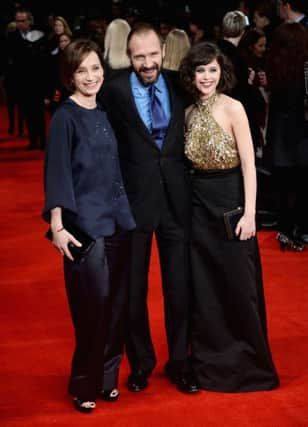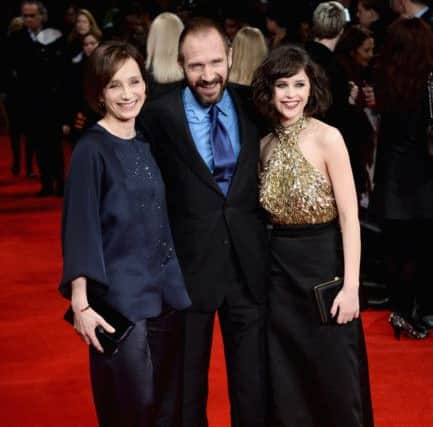Film review: The Invisible Woman


THE INVISIBLE WOMAN (12A)
Directed by: Ralph Fiennes
Starring: Felicity Jones, Ralph Fiennes, Joanna Scanlan, Kristin Scott Thomas


STAR RATING: * * *
Adapted from Dickens biographer Claire Tomalin’s 1996 book of the same name, the film cuts back and forth between Ternan’s life as a married woman haunted by her past and the complications of her life as a young actress whose vivacity far outshone her talent. Attracting the attention of Dickens (by this point the most famous man in Britain), she finds herself falling for him – and vice-versa – after he casts her in a theatrical version of his friend Wilkie Collins’s play The Frozen Deep.
Advertisement
Hide AdAt first the attraction is that of a famous author being flattered by an ardent fan, but it soon deepens and becomes more complicated as Nelly’s uncertain future appeals to Charles’s charitable instincts and her beauty, intelligence and insights into his work reveal things to Charles about himself that his own wife, Catherine, is no longer willing to indulge (she understands a few home truths about her husband and his relationship with his public that he’d clearly rather not confront).
Fiennes handles all this with a tasteful subtlety befitting a period that sought to avoid scandal at all cost. What prevents The Invisible Woman from being another middlebrow trawl through a little-known footnote in a famous historical figure’s life, however, is Fiennes’s willingness to put a thoughtful female slant on the story. Working from a script by Abi Morgan (Shame), Fiennes – who casts himself as Dickens – has sympathy for the celebrity author’s predicament after he falls for the then barely 18-year-old Ternan (Felicity Jones), but he doesn’t try to venerate or justify Dickens’s behavior. The film certainly doesn’t shy away from his emotional brutality, or the effect of this on both Nelly and Catherine.
Indeed, the latter – played with grace by Joanna Scanlan (best known as Terri from The Thick of It) – is awarded the film’s two most moving scenes: the first, a quietly devastating confrontation between Nelly and Catherine that both Jones and Scanlan play with a sensitivity that belies the hurt and anguish Charles’s actions have elicited in both women; the second, a remarkable moment in which Catherine learns the truth of her own marriage via a letter Dickens himself sends to The Times.
Against the strength of these women, Dickens comes across as a bit of a coward, and as such Fiennes has put an intriguing spin of the old macho notion that artistic genius comes at a price.
REVIEW BY ALISTAIR HARKNESS